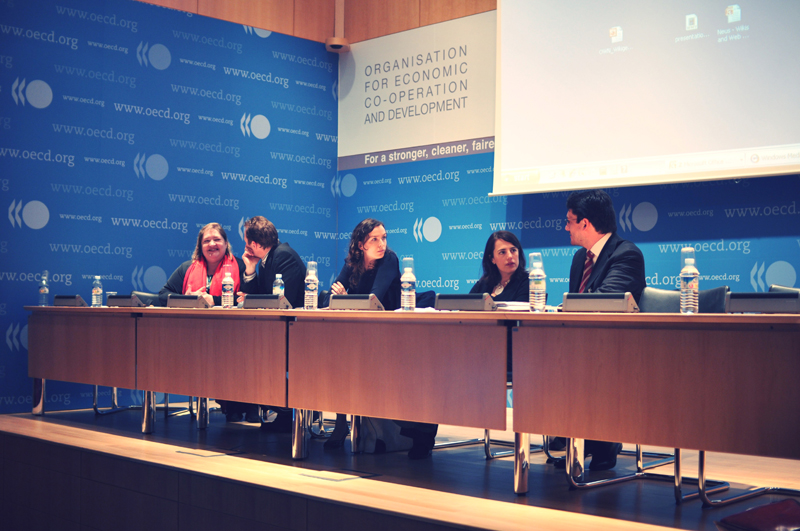photo by Elena Rossini
With the barrage of messages and updates from Facebook, Twitter, and blogs, the world of new media can be an overwhelming place. But the multitude of social and cultural benefits of the Internet can outweigh its frenetic effects. At a recent conference on “Enhancing Diversity via WEB 2.0” hosted by OWN (Organisation-wide Network on Gender and Diversity), I learned all about Wikigender and Wikiprogress, two websites that promote gender equality and healthy societies through bottom-up dialogue (as with Wikipedia, they allow multiple users to create, organize, and modify content).
Since Wikigender is a resource on global gender dynamics that readers can easily edit, it serves as a community builder, allowing anyone to contribute, regardless of age, gender, race, financial status, occupation, or education. In the words of its founder, “Wikigender makes things more democratic and gives direct access to power.” The process of creation is a gender equalizer and a diversity enabler.
Wikigender and Wikiprogress illuminate intuitive notions on gender through simple statistics. Wikigender recently ran a headline about Costa Rica electing its first woman president. And by quickly clicking over to Wikiprogress, readers can see that Costa Rica also ranks #1 on the “Happy Planet Index.” Perhaps there is a correlation between women in power and healthy societies.
See for yourself — check out Wikigender and Wikiprogress and join in the ongoing dialogue.
– HALEY HOGAN, a writer & performance artist based in Paris.


Join the discussion One Comment